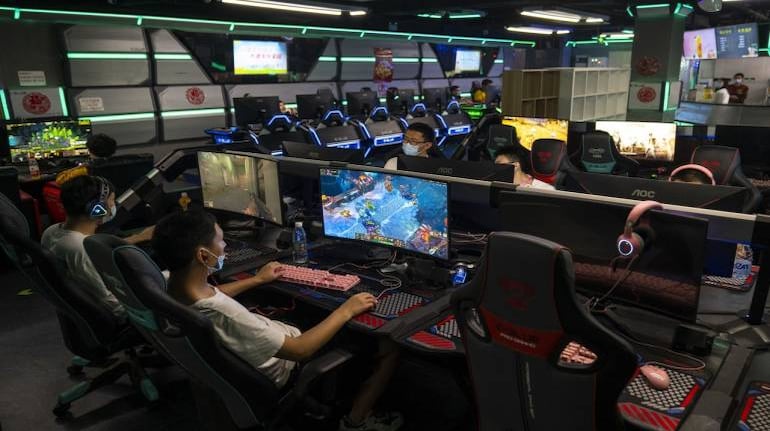



Dhruv Garg and Hemant Kothari
Online gaming has repeatedly been endorsed as the sunrise sector. It has produced three unicorns in quick succession, and attracted over $1.6 billion in FDI in the past 18 months. But when India’s tax policy potentially recommends an increase in Goods and Services Tax (GST) of over 1,000 percent, the Sun is all but certain to set on this industry. Moreover, this tax policy may be based on a misinformed understanding of the law and the Constitution.
A Group of Ministers (GoM) recently submitted their recommendations on the method of valuation for calculating the GST for online gaming, casinos, and horse racing. According to reports, the GoM recommended that online gaming be taxed at 28 percent on the entire contest entry amount. If operationalised, this is likely to throw the $1.5 billion industry into a tailspin, thereby affecting over 50,000 direct jobs and more indirect jobs.
To understand the model of online gaming platforms, imagine two gamers paying a contest entry amount (CEA) to create a prize pool. The platform deducts a small fee from this CEA as gross gaming revenue (GGR) for their services. The rest of the CEA goes to the winner of the game/contest. Until now, the platforms were paying 18 percent GST on the GGR. This is in line with the general taxation principle that the GST is charged only on the value of supply of goods/services. The value of supply is the platform fee in the case of online gaming. Even globally, the practice is to charge 15-20 percent tax on the GGR.
The GST is not paid on the whole of the CEA since the prize pool is recognised as an ‘actionable claim’. The prize pool is neither a good nor a service as it is owed by the platform to the winning player. The actionable claim is taxed under the GST Act only for gambling, betting, and lottery, whereas in relation to any other legitimate business activity it is explicitly not taxed.
Moreover, various statements refer to a Supreme Court judgment — Skill Lotto Solutions as one of the main basis for taxing the whole of the CEA. The only trouble is that the judgment dealt with lottery. In Skill Lotto, the lottery operator argued that by taxing actionable claims in relation to gambling and lottery and not any other industry, the right to equality of the lottery operators under Article 14 of the Constitution is violated. The court disallowed the claim, and held that the GST charged on actionable claim in relation to the lottery is constitutional as lottery is a res extra commercium activity.
In other words, gambling and lottery cannot be compared to legitimate business activities that are protected under Article 19(1)(g), which gives all citizens the freedom to practice legitimate business, trade, occupation, or profession. It may be inferred from Skill Lotto that if the claim had been raised for a constitutionally-protected activity under Article 19(1)(g), the court may have allowed the claim of hostile discrimination.
The judgment that was relied on as authority by the Supreme Court in Skill Lotto is the seminal case of RMD Chamarbaugwala. Interestingly, it seems that the GoM have missed the fact that Chamarbaugwala and several other subsequent Supreme Court and multiple high court judgments have unequivocally held that games of skill cannot be clubbed with gambling (which is a game of chance). Unlike games of chance, games of skill have predominance of skill involved in its outcome, and are protected under the Constitution.
If the GoM erroneously ends up equating games of skill with games of chance, they may cause the GST council to recommend a tax regime which arbitrarily treats online skill games as gambling. The recommendation will also discriminate against online skill games by taxing its actionable claims while not taxing the same for any other legitimate business activity. In essence, the recommendations stand to violate Article 14 of the Constitution.
Unconstitutionality, massive adverse economic impact, loss of jobs and investor confidence are enough reasons to rethink the recommendation of the GST on the CEA. Such a tax policy can never claim to be rational, or in the best of interest of the nation. It can now only be hoped that the GoM in its wisdom will recognise the anomaly, consider the well-settled law, and support the sector.
Dhruv Garg is a technology lawyer practicing in New Delhi, and Hemant Kothari is a corporate and taxation lawyer practicing in Jaipur and New Delhi. Views are personal, and do not represent the stand of this publication.

Discover the latest Business News, Sensex, and Nifty updates. Obtain Personal Finance insights, tax queries, and expert opinions on Moneycontrol or download the Moneycontrol App to stay updated!
Find the best of Al News in one place, specially curated for you every weekend.
Stay on top of the latest tech trends and biggest startup news.